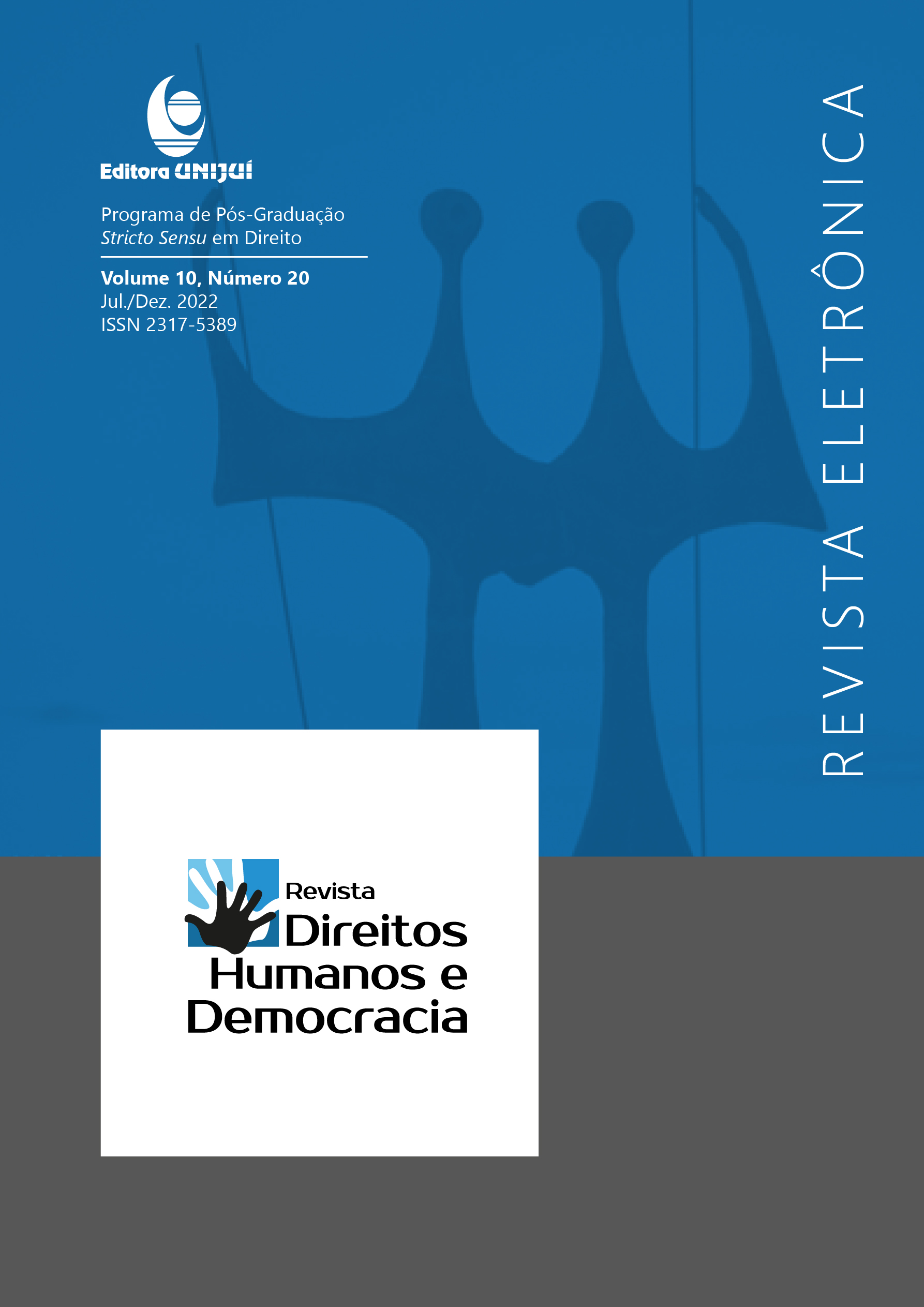Foi lícito o ato peruano de impedir a participação da Venezuela na VIII Cúpula das Américas?
DOI:
https://doi.org/10.21527/2317-5389.2022.20.12364Palavras-chave:
VIII Cúpula das Américas, Declaração de Québec 2001, Venezuela, PeruResumo
O presente estudo tem por objetivo analisar a legalidade do ato unilateral do governo peruano de retirar o convite ao Estado da Venezuela para participar da VIII Cúpula das Américas realizada em Lima, capital do Peru. Para tanto foi adotada uma abordagem analítica, por meio do método de estudo de caso, valendo-se de pesquisa bibliográfica e documental. Com base na institucionalidade do processo de Cúpula, bem como na Declaração de Quebec de 2001, foram identificados três requisitos para a legalidade de tal ação: 1) a ruptura democrática; 2) realização de consultas, mediante um dos mecanismos hemisféricos, regionais e sub-regionais existentes à época da Declaração de Quebec; 3) decisão tomada pelo consenso dos integrantes do Grupo de Revisão e Implementação da Cúpula – GRIC. No caso em tela, a medida adotada tinha lastro em motivo idôneo, porém foi decidida por quem não tinha a competência para fazê-lo, usurpando a competência específica e exclusiva do GRIC e, com isso, transformou-se em conduta que infringiu o Direito Internacional.
Downloads
Publicado
Como Citar
Edição
Seção
Licença
Copyright (c) 2022 Revista Direitos Humanos e Democracia

Este trabalho está licenciado sob uma licença Creative Commons Attribution 4.0 International License.
Ao publicar na Revista Direitos Humanos e Democracia, os autores concordam com os seguintes termos:
Os trabalhos seguem a licença Creative Commons Atribuição 4.0 Internacional (CC BY 4.0), que permite:
Compartilhar — copiar e redistribuir o material em qualquer meio ou formato;
Adaptar — remixar, transformar e criar a partir do material para qualquer fim, inclusive comercial.
Essas permissões são irrevogáveis, desde que respeitados os seguintes termos:
Atribuição — os autores devem ser devidamente creditados, com link para a licença e indicação de eventuais alterações realizadas.
Sem restrições adicionais — não podem ser aplicadas condições legais ou tecnológicas que restrinjam o uso permitido pela licença.
Avisos:
A licença não se aplica a elementos em domínio público ou cobertos por exceções legais.
A licença não garante todos os direitos necessários para usos específicos (ex.: direitos de imagem, privacidade ou morais).
A revista não se responsabiliza pelas opiniões expressas nos artigos, que são de exclusiva responsabilidade dos autores. O Editor, com o apoio do Comitê Editorial, reserva-se o direito de sugerir ou solicitar modificações quando necessário.
Somente serão aceitos artigos científicos originais, com resultados de pesquisas de interesse que não tenham sido publicados nem submetidos simultaneamente a outro periódico com o mesmo objetivo.
A menção a marcas comerciais ou produtos específicos destina-se apenas à identificação, sem qualquer vínculo promocional por parte dos autores ou da revista.
Contrato de Licença: Os autores mantém os direitos autorais sobre seu artigo, e concedem a Revista Direitos Humanos e Democracia o direito de primeira publicação.













